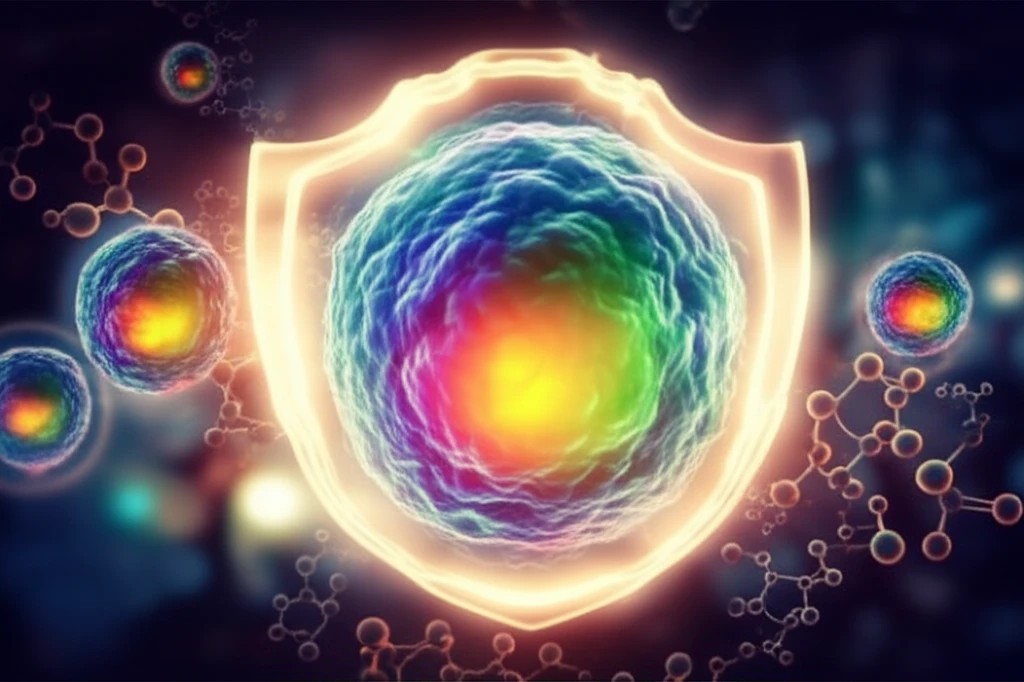
Melatonin vs. Cancer Treatment: Can This Hormone Really Help?
"Exploring the Promising Role of Melatonin in Mitigating Chemotherapy Side Effects and Enhancing Treatment Outcomes"
Cancer treatment, particularly chemotherapy, is a journey filled with challenges. While the goal is to eliminate cancerous cells, the harsh realities of side effects like nausea, fatigue, and DNA damage can significantly impact a patient's quality of life. But what if there was a natural ally, a hormone that could potentially lessen these burdens and even boost the effectiveness of treatments? Enter melatonin, often associated with sleep, but now increasingly recognized for its broader health benefits.
Melatonin, primarily produced by the pineal gland, is a powerful antioxidant and regulator of various bodily functions. Recent research has shown it could play a crucial role in mitigating the detrimental effects of chemotherapy. This is particularly exciting as it provides a natural, potentially accessible way to improve the treatment experience and, possibly, the outcomes for those battling cancer.
This article delves into the science behind melatonin's potential in cancer treatment. We'll explore how this hormone interacts with chemotherapy, its effects on the body, and the research that supports its use. It's a journey through the science, offering insights, and hope for individuals and their families facing the challenges of cancer.
The Science of Melatonin: More Than Just Sleep

Melatonin's primary function is to regulate the sleep-wake cycle, but its antioxidant properties and ability to interact with cellular processes make it a potent agent beyond sleep regulation. It acts as a scavenger of free radicals, which are unstable molecules that can cause significant damage to cells and DNA. This antioxidant function is crucial, especially when considering the impact of chemotherapy.
- Antioxidant Properties: Neutralizes free radicals, protecting cells from damage.
- DNA Protection: Helps safeguard DNA from chemotherapy-induced harm.
- Immune System Support: Boosts the immune response, aiding in recovery.
- Anti-inflammatory Effects: Reduces inflammation, improving overall well-being.
Melatonin in Cancer Treatment: A Promising Horizon
The exploration of melatonin in cancer treatment is an ongoing field. With mounting evidence of its protective and supportive effects, melatonin holds potential for improving the treatment journey for cancer patients. As research continues, this hormone is emerging as a valuable ally in the fight against cancer, potentially offering a natural, effective, and accessible way to minimize side effects and improve treatment success. Always consult healthcare professionals for personalized advice.
